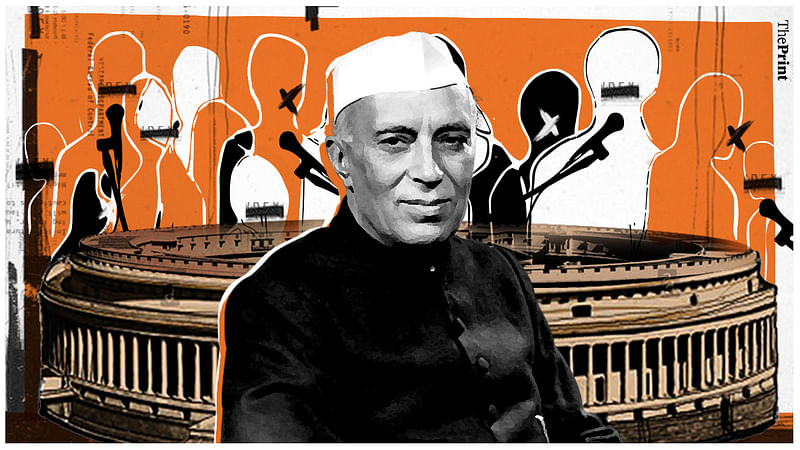by SONAL MATHARU

The 16-day freedom of speech debate in Parliament pitted Jawaharlal Nehru against Syama Prasad Mookerjee. Their echoes continue to bedevil and bruise India today.
The mood of Parliament was sombre. It was 29 May 1951, the 14th day of the 16-day heated debate to bring the first amendment to the Constitution of India. The thumping of the tables and shrill voices of the Members of Parliament disrupting speeches were matched by the rising tempers. Freedom of speech was at stake.
For two weeks, interim Prime Minister Jawaharlal Nehru had been passionately pressing for ‘changes’ in the Article guaranteeing freedom of speech, which, according to him, were urgently needed. But the changes, which he called small and simple, were about to redact the freedoms which the country—and its press—was only starting to enjoy barely 46 months into India’s Independence.
“Every freedom in the world is limited,” said an impassioned Nehru in Parliament, debating why the press needed to be leashed. The press, he argued, must have some balance of mind, which it seldom possesses, if it wants to enjoy the freedom. “They cannot have it both ways – no balance and freedom,” he added.
For the first time in history, perhaps, Gandhians such as Acharya Kriplani, socialists such as Jayprakash Narayan and Right-leaning leaders such as Syama Prasad Mookerjee united to defend the rights of Indian citizens. Fists were clenched, tables thumped, names called. The battle over the freedoms spilled out of Parliament. It was fought in newspaper editorials, in courtrooms, in public squares and on the streets. But on 18 June 1951, with 228 ayes, 20 nos and about 50 abstentions, the amendments were passed. Nehru won but it was the day India lost its way to the gates of freedom.
The restrictions to Article 19(1)(a) have altered the social and political contours of the nation. And the echoes of the debate continue to bedevil, batter and bruise India. From Salman Rushdie’s Satanic Verses to M.F. Husain’s paintings; from Leena Manimekalai’s interpretation of Kaali to Mohammed Zubair’s tweets; from Kanhaiya Kumar’s speeches to Prashant Bhushan’s criticism of the Chief Justice of India, freedom of speech and expression has always been up for contestation.
The Print for more